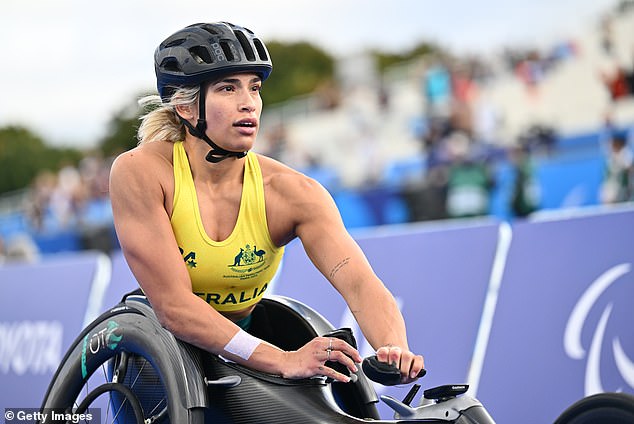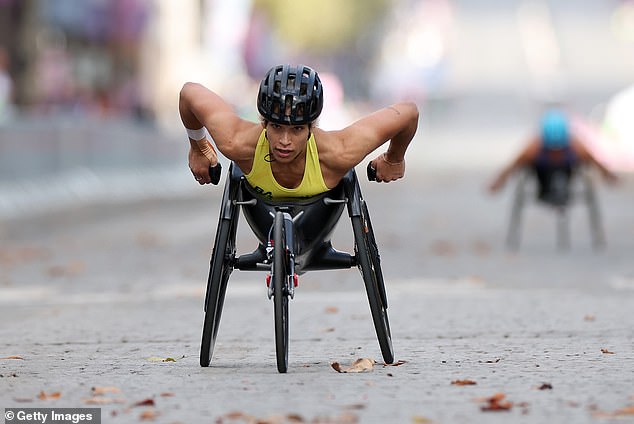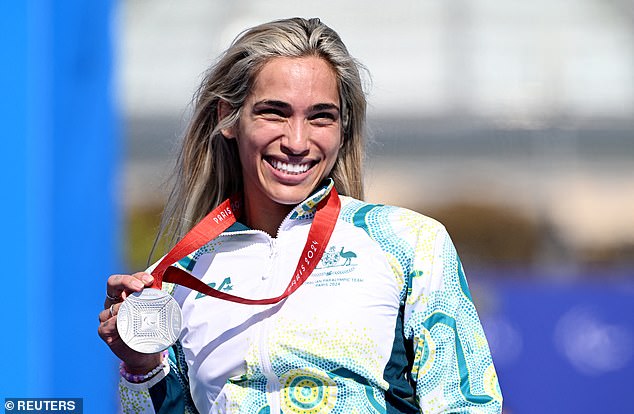- Australian flag bearer Madison de Rozario opens up about her father’s death
- De Rozario was told the news the day after the opening ceremony.
- The wheelchair star revealed the news after winning silver in the marathon
Australian flag bearer Madison de Rozario learned of her father’s death the morning after the opening ceremony but did not make it public until after winning silver in the women’s marathon on Sunday.
The 30-year-old wheelchair racing legend said she considered returning to Australia and abandoning her campaign altogether, but her family encouraged her to stay in Paris and compete.
An emotional De Rozario broke the news to the media shortly after her race.
“I think I owe a lot to him as the person I am. We grew up as a very close family,” she said.
‘As I grew up, he was incredibly influential and I think as you get older, you start to realize what parts of yourself are your parents.
‘When you’re young, you find good and bad things that remind you of yourself and your father and you resent them a little.
‘It was a complicated relationship and I think being able to look at it so clearly has allowed me to learn from him many of the good things that define me as a person and an athlete.’
De Rozario told reporters she broke down in tears as she hugged her coach the day after hearing the news, unable to contain her emotions.
Madison de Rozario won silver in the women’s wheelchair marathon on the final day of competition before revealing that her father had passed away at the start of the Games.

The 30-year-old wheelchair racing great said she considered returning home to Australia.
“I think it really hit me when the stress of the race started to hit me,” he said.
‘My team has been incredibly wonderful. It’s hard to balance everything.
“If I’m not going to be in Australia with my family, I’d rather be in a Paralympic Village with 160 of my best friends. For a group of people who had no idea what a week I was having, they were 100 percent the people I’d want to be with.
“I couldn’t have asked for anything better.”
The Paris Marathon was complicated for wheelchair athletes by the cobblestones.
“It was quite a challenge,” de Rozario said.
“I think the first 30 kilometres were probably more enjoyable than I expected. I think I had it in my head that the whole course was going to be the most brutal I’ve ever done in my life.

De Rozario said she broke down in tears as she hugged her coach the day after hearing the news about her father.
‘Apart from some very, very tricky corners, there were some really forgiving stretches of road that were just nice long stretches.
‘I didn’t really think it would be that difficult. Going up the cobblestones made you stumble around in the wheelchair. Going up hills was torture.
“It’s good to know that in the most difficult part of the course… I was able to take advantage of it and make the most of it.”


